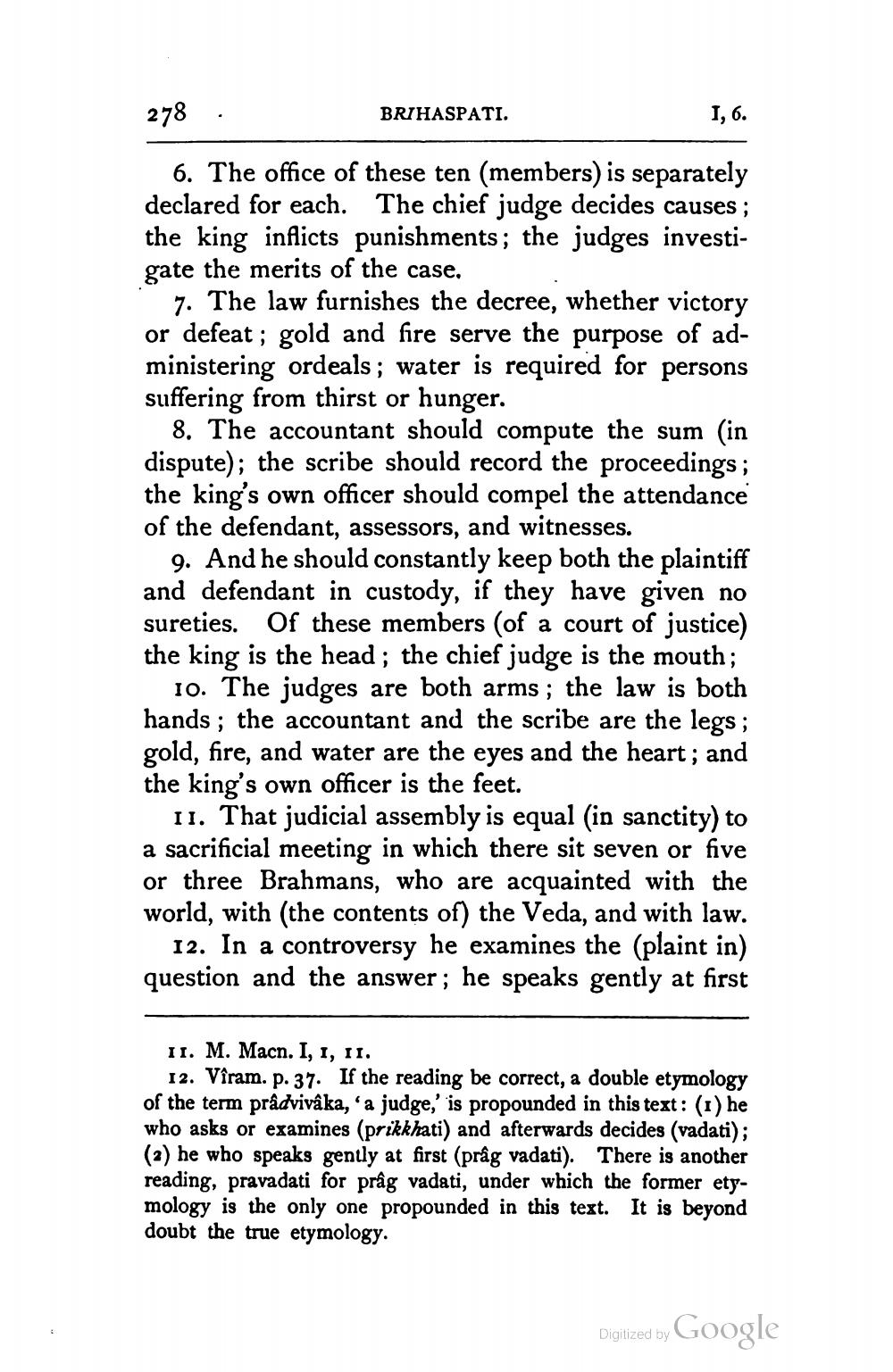________________
278
BRIHASPATI.
1,6.
6. The office of these ten (members) is separately declared for each. The chief judge decides causes; the king inflicts punishments; the judges investigate the merits of the case.
7. The law furnishes the decree, whether victory or defeat ; gold and fire serve the purpose of administering ordeals; water is required for persons suffering from thirst or hunger.
8. The accountant should compute the sum in dispute); the scribe should record the proceedings; the king's own officer should compel the attendance of the defendant, assessors, and witnesses.
9. And he should constantly keep both the plaintiff and defendant in custody, if they have given no sureties. Of these members (of a court of justice) the king is the head; the chief judge is the mouth;
10. The judges are both arms; the law is both hands; the accountant and the scribe are the legs; gold, fire, and water are the eyes and the heart; and the king's own officer is the feet.
11. That judicial assembly is equal (in sanctity) to a sacrificial meeting in which there sit seven or five or three Brahmans, who are acquainted with the world, with (the contents of the Veda, and with law.
12. In a controversy he examines the (plaint in) question and the answer; he speaks gently at first
11. M. Macn. I, 1, 11.
12. Vîram. p. 37. If the reading be correct, a double etymology of the term prádvivâka, a judge,' is propounded in this text: (1) he who asks or examines (prikkhati) and afterwards decides (vadati); (2) he who speaks gently at first (präg vadati). There is another reading, pravadati for präg vadati, under which the former etymology is the only one propounded in this text. It is beyond doubt the true etymology.
Digitized by Google




